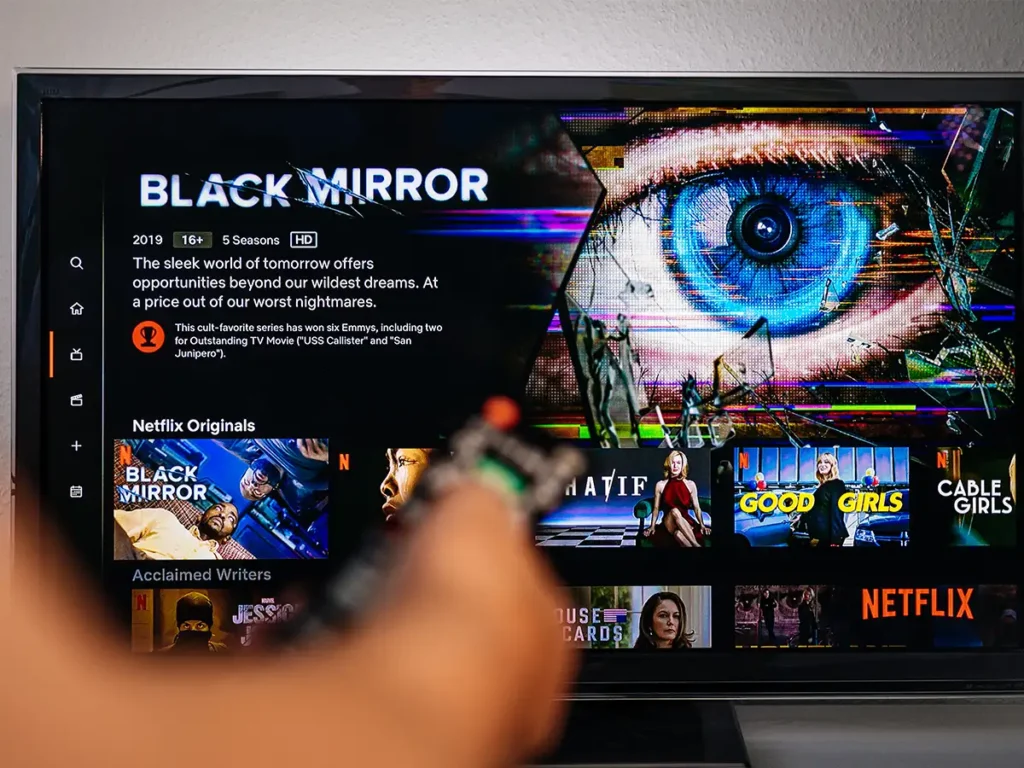Black Mirror: A forecast of true events?

The highly acclaimed Netflix series Black Mirror has made a comeback with its sixth season, after a hiatus of four years. The first episode, titled “Joan is Awful,” delves into a disturbing world where deep fakes, phone surveillance, and streaming platforms that own the rights to your personal story are not far from reality, according to tech experts.
In this episode, we are introduced to Joan, an ordinary woman brilliantly portrayed by Annie Murphy, who stumbles upon the shocking revelation that her life is being closely monitored through phone surveillance. Even more unsettling is the fact that her character in the TV show is brought to life by an artificial intelligence deep fake of Salma Hayek, whose likeness was sold to the streaming company. While the premise may seem like pure fiction, Dr. Sebastian Sequoiah-Grayson, an expert in computer science, reveals that much of the technology depicted is already within our grasp.
Dr. Sequoiah-Grayson explains that intelligence agencies and certain private actors possess the capability to remotely activate the cameras and microphones on individuals’ phones, gaining access to their personal data at will. He even mentions an Israeli security company that sells software enabling such invasive actions to despotic leaders across the globe. While this technology may not be readily available to the general public, it is accessible to a substantial number of people worldwide.
The existence of deep fake technology is another unsettling truth. Deep fakes involve digitally altering videos to make it appear as though someone is engaging in actions or uttering words they never did. Although creating convincing deep fakes still requires a certain level of technical proficiency, numerous examples of deep fake celebrities, including the likes of Tom Cruise and Joe Biden, have already surfaced. Dr. Sequoiah-Grayson adds that generating three-dimensional environments closely resembling reality is also within our reach. However, the real-time processing depicted in “Joan is Awful” remains cost-prohibitive due to the extensive computing power it demands.
Legal considerations pose another potential obstacle to the realization of a scenario akin to the one portrayed in the episode. In “Joan is Awful,” Joan discovers that she has no legal recourse against the streaming service that creates a series about her life, as she unwittingly consented to this in the fine print of the terms and conditions. Although Dr. Sequoiah-Grayson is not a lawyer, he suggests that the defense of a “reasonable person” would likely come into play, as no reasonable individual would willingly agree to such extensive use of their personal information. He draws parallels with infamous cases, such as that of the German cannibal who obtained recorded consent from his victim before committing heinous acts. These emerging technologies, including deep fakes, pose novel legal questions that courts around the world will need to address.
The episode serves as a chilling reminder of the potential dark side of technology and emphasizes the need for ethical considerations and legal protections. While we may not be living in a world precisely akin to the one portrayed in “Joan is Awful,” it serves as a cautionary tale, urging us to contemplate the implications of surrendering our personal information and likeness to powerful entities. As technology advances at a rapid pace, it is of utmost importance that society remains vigilant and ensures the establishment of adequate safeguards to protect individuals from potential abuses.







Have your say